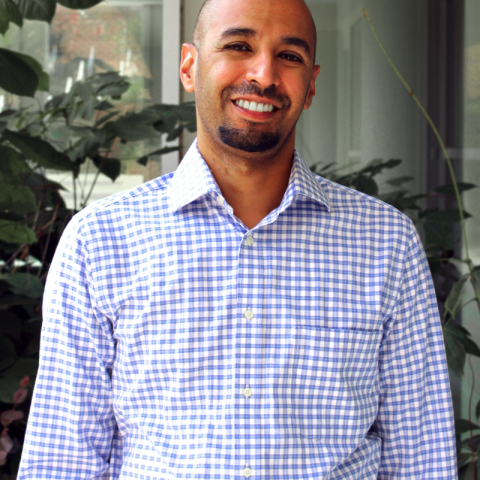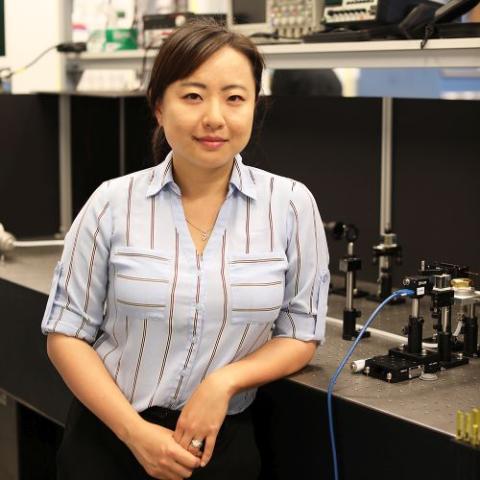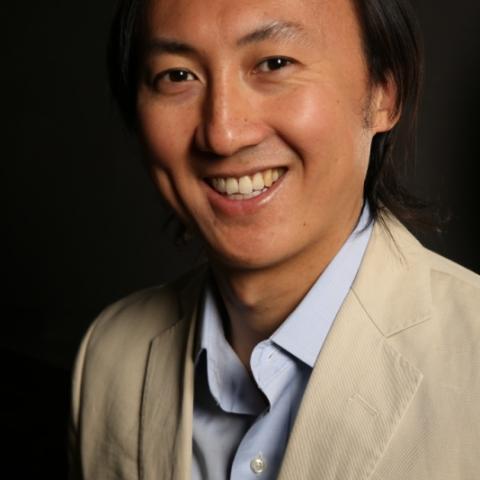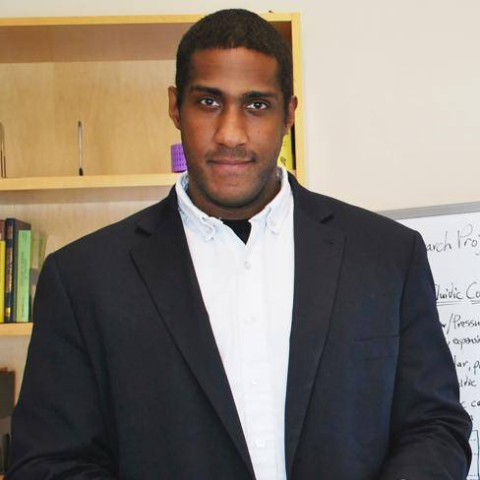Gary McMurray

After earning bachelor’s and master’s degrees in mechanical engineering from Georgia Tech, Gary McMurray interviewed for a number of jobs. Most were in the defense industry, and the job duties were very specific.
“I joke about one job that was to design fuel pumps for the aft section of cargo planes,” McMurray recalled. “I asked, ‘Well, what if I want to design fuel pumps for the front section?’ They said, ‘No. That’s a different skill set.’”
The job sounded too constraining and unappealing to McMurray, so he continued his job search, interviewing with the Georgia Tech Research Institute (GTRI) in 1989. He had been working in robotics, a relatively new field at the time.
“I was looking for something in robotics, and GTRI was trying to get into robotics,” he said. “They didn’t have anybody working in that field at all, so I was really the first person hired to work in that area. It gave me an opportunity to start from scratch and develop something unique and different. I really enjoyed that.”
Three decades later, McMurray still works at GTRI.
“I wear two hats in the organization,” he said. He is the division chief for the Intelligent Sustainable Technologies Division, and an associate director for the Institute for Robotics and Intelligent Machines (IRIM), working with director Seth Hutchinson.
The Intelligent Sustainable Technologies Division conducts research to improve the human condition through transforming the agricultural and food systems, sustainable use and access to energy and water, and improving workplace safety and pandemic response. IRIM is an umbrella under which robotics researchers, educators, and students from across campus can come together to advance a wide variety of robotics activities at the Institute.
The Intelligent Sustainable Technologies Division has approximately 36 research faculty and 40 students. The unit hires about 10% of all the students at GTRI and maintains close ties with the academic side of campus.
“One of the things I enjoy in my role as a division chief is the ability to set the vision and mission,” McMurray said. “We’re a little bit different from the rest of GTRI because we don’t do the Department of Defense work. We work a lot with the campus, but we also work with other universities on sustainability projects regarding food or energy. The projects have the potential to make a big impact. I describe it as having one foot on the basic research side and one foot on the applied side. We have master’s and Ph.D. students doing cutting-edge basic research, and we’re also building systems and applying research and deploying things into the field.”
The division’s food processing research includes improving yield, food quality, and food safety while minimizing the environmental impact by applying image processing, robotics, biosensors, and environmental treatment technologies. The division also conducts air quality research, including monitoring and reducing the effects of vehicular emissions.
So, what’s the connection between food processing and auto emissions?
“To solve problems in both of those areas we employ general research technologies — robotics, chemical and biological sensing, data analytics, machine learning, systems engineering, and then energy and materials,” McMurray said. “Approaches that work in traditional manufacturing may not work in the food industry. There is no CAD drawing for a boneless chicken breast or a chicken leg. Each one is different. It’s also wet, slippery, and could be spoiled.”
That’s where sensing and data analytics come into play. The same applies to analyzing vehicular emissions.
“When you look at food processing, our work really brings together all of these different skill sets. And then when you look at the data analytics side of air quality emissions, the team has the longest continuous set of data about air quality in the city. This has been the key database that the EPA uses for studying carbon emissions for automobiles,” McMurray said.
After more than 30 years at GTRI, McMurray still gets excited when a plan comes together.
“The most rewarding part of the work is when you can bring together the basic research and the applied, build a system that does something new and novel, put it into the field and test it, and have somebody come back and say, ‘That’s really cool. That worked.’”
Robotics; Modeling; Controls








